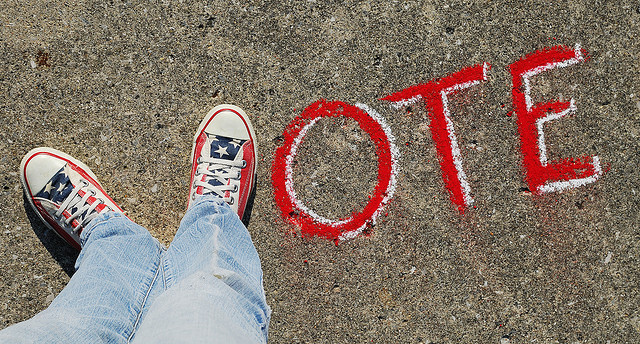
I’m sorry to tell you, but Congress won’t consider those scathing 140 characters you retweeted yesterday when they were debating a bill. And I know you put a lot of thought into that charged comment on someone’s Facebook status, but it's unlikey that any government workers will even read it. In fact, the vast majority of everything you say or do will have virtually no direct effect on the government. Why is that? Because according to statistics, it’s quite likely that you won’t even vote.
This sad fact is deeply rooted in the voter turnout of the past few elections. In 2012, a presidential election year, only 45 percent of ages 18-29 showed up at the polls. The last midterm elections in 2010 were only slightly better: Approximately 51 percent of the same demographic turned out. It’s fairly evident that half of our age group simply doesn’t place importance on voting.
The common belief among non-voters is that their vote doesn’t matter. It seems hard to believe that in a nation of 300 million people, one vote will make a difference. However, think of it this way. In 2008, the Senate race in Minnesota was decided by 312 votes. One of Connecticut’s Congressmen was elected by a margin of 83 in 2006. There was even a School Trustee election in 2008 where over 4,500 ballots were cast, but the winner only won by one vote.
Besides, what happens when a large number of people decide their votes don’t matter? According to the US Census Bureau, our age group comprises 10 percent of the total population. There are over thirty million of us. If over fifteen million of us don’t turn out, our generation’s voice is significantly weaker.
One abandons so many rights when he or she neglects to vote. In a list of reasons to vote, one county in Nevada stated, “If you don't vote, you're putting control of your world into the hands of someone else … and you have no idea where those hands have been.” For example, when you pay taxes, part of that is used to pay the salaries of government employees. Voting is your opportunity to decide who you want to receive that salary.
Other portions of your tax dollars are used to support both state and federal programs. It only makes sense to vote for candidates who are going to support the programs you deem important. As young people, many of these programs affect us every day. Think about the infrastructure and the roads you drive on. Many of us are affected by student loan interest rates. Still more are worried about finding a job after leaving school. And then, many years from now, the presence or absence of Social Security and Medicare will influence the final years of our lives.
I don’t want to sound like a hypocrite for denouncing social media activism in an opinion piece published on the Internet. I admit that things like Facebook posts and tweets count for something. Our generation receives much of its news from social media. We are constantly bombarded with a storm of biased headlines pushing the idealism of every corner of the political field.
This onslaught, though smothering at times, helps us form well-developed opinions about how the government should operate. I have my perspective, and there’s no guarantee it aligns with yours. I’m planning on putting mine on paper next week, and I challenge you to do the same.
The Northwestern student body is very politically engaged. However, no matter how much we shake our fists and fill the Internet with our ideas, our words are empty if we neglect our basic civil right. Election day is November 4. Your ideas matter, so make sure they count.